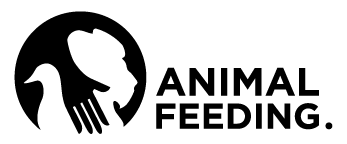In May 2021 the From Feed the Birds to Do Not Feed the Animals team held our second research network meeting, this time for our full research network (we’d used the first meeting to pilot our online technologies and collaboration methods so focussed on cats and cat feeding, and engaged research and invited only members of our research network who are interested in or involved with those areas). This time we chose COVID-19 as a lens through which to view animal feeding and so the meeting was called ‘Care Control and Feeding of Animals in a Pandemic’.
We created a short YouTube play list on the subject of animal feeding and care during COVID-19 in the home (pets), in gardens and beyond (birds), and in zoos and museums (wildlife and specimens). In the interests of engaged research and research transparency, and with the kind permission of our interviewees we’re able to share these films outside our research network and they can be found on the DNFTA YouTube channel as the playlist Animal Feeding in the Time of a Pandemic. Watching these films got everyone thinking about the questions of what was most interesting, what was most important, and what was missing from the films – all of which provided rich material for discussion during the meeting.
We started the meeting itself with flash talks from some of the early career researchers involved in the project, giving an overview of their work so far on cats, kites and other birds, and zoo life. This generated food for thought for our discussions around the project’s next steps and setting its agenda.
It was then time to move into breakout groups for small group discussions. We had four breakout sessions over the course of the two day meeting on the topics of ‘participatory literature reviews and reading together’ followed by ‘care and feeding of pets in a pandemic’, ‘feeding birds in a pandemic – garden spaces and outdoor places’, and ‘zoo life and after life: care of living and dead animal specimens in a pandemic’ (i.e. following the themes of our films). For the reading together breakout session, participants each brought three recommended sources to share and discuss on the subject of animal feeding. The sources were a mix of academic articles, archives, blogs, policies / guidelines, films and web sites. We’re currently in the process of collating all the recommended sources and identifying key themes. The other three breakout sessions used the films as a prompt for discussions exploring the way that the COVID-19 pandemic, and its associated lockdowns, have affected the way we feed and care for animals. In relation to pets, and birds and other wildlife, our discussions centred on the way the pandemic, and lockdowns in particular, have changed our relationships with pets and wildlife – changing the way we see them and changing the way we feed them. With pets however the discussion expanded into a much wider conversation about pet feeding generally including how it creates a human / animal bond, the highly specialised form of modern pet foods, and whether, despite all this specialisation, pet foods are actually ‘good’ or ‘appropriate’ for our pets. Meanwhile, our discussion of care and feeding of animals in museums and zoos focused, unsurprisingly on how profoundly these organisations have been affected by COVID-19. Perhaps most interesting, and unexpected, was that the work zoos had done to prepare them for Brexit stood them in very good stead for dealing with the pandemic; zoos appeared not to experience shortages of food for animals (although they were certainly in need of funds to buy that food and campaigns to ‘feed our animals’ were very effective) but they did have to make substitutions which had been identified as part of Brexit contingency planning.
For the final part of the meeting we had a large group discussion of wider questions and issues that had arisen from the meeting, especially thinking back to the work in progress flash talks at the start of the meeting. We discussed the project’s research agenda and our next steps as we move into the fieldwork stage. As the team are starting fieldwork we are planning that our next research network meeting will be in November. To keep in touch between now and then the team are planning a podcast so watch this space for updates on that.
Thank you very much to everyone who took part in the meeting, we really value your time and contribution. Please keep in touch with the team if you have questions or ideas between now and our next meeting.
